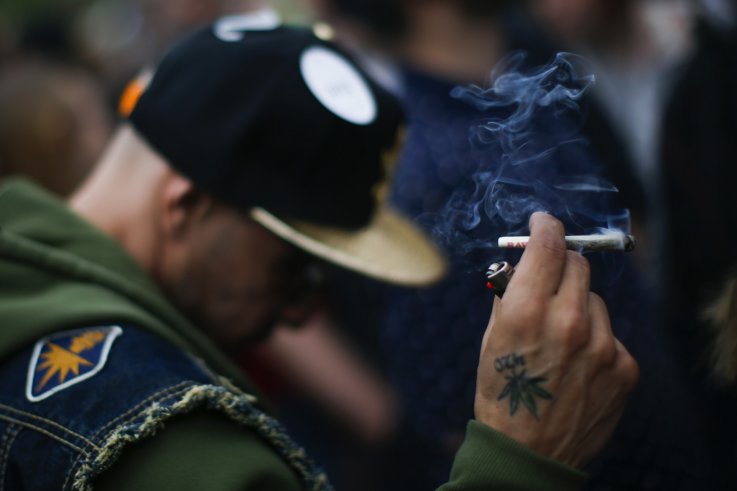New York Decriminalized Marijuana. Does The New Law Go Far Enough?
A bill signed into law 30 days ago takes effect today, partially decriminalizing marijuana possession.
Residents across New York state can publicly possess or smoke up to two ounces of marijuana without criminal penalties.
The new law changes possession of small amounts of marijuana from a low-level misdemeanor to a non-criminal violation. That means police can't arrest people, but they can issue summonses that could lead to fines.
The maximum penalty is $50 for possessing less than one ounce of cannabis and the maximum fine is $200 for holding between one and two ounces. While the law may seem like a progressive step, loopholes and issues left unaddressed mean many caveats remain that could disproportionately affect people of color throughout the state.
Melissa Moore, New York's deputy state director for Drug Policy Alliance told Newsweek on Thursday that there are two distinct components of the bill: decriminalization and expungement.
"The expungement piece is really important," Moore said, "as it will be automatic–it doesn't require paying for a lawyer, or anything like that." By July 2020, low level marijuana charges should be automatically expunged.

Here are some things to know about it:
A violation isn't a criminal conviction, but it can have significant consequences.
Emma Goodman, a lawyer for the Legal Aid Society, told Gothamist on Wednesday, "It's still something that shows up on your record and stays with you for a very long time." She added, "And it can affect your ability to get jobs and housing and all of the things that criminal convictions can affect."
The bill does not remove the odor of marijuana as justification for a stop or search. This is a major loophole and could allow for continued enforcement and interaction with communities over marijuana prohibition.
The rest of the bill is "a moot point" if this premise still exists, Moore said, as the ability to use odor of marijuana as justification is based on a high level of discretion given to law enforcement relating to individuals—namely younger people of color—who have been consistently targeted by police.

No comments:
Post a Comment